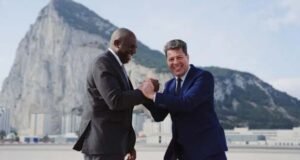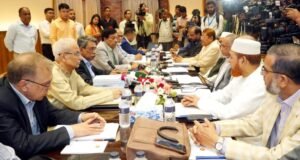 Russia’s military forces have begun a large exercise involving around 250 aircraft and 12,000 service personnel, according to its defence ministry.
Russia’s military forces have begun a large exercise involving around 250 aircraft and 12,000 service personnel, according to its defence ministry.
The ministry described the four-day drill as a “massive surprise inspection”, to check combat readiness.
The tests began on the same day as Nato and some of its partners started an Arctic training exercise.
Russia’s actions in Ukraine and incursions into Western airspace have led to rising tensions with the West.
According to reports on the Russian agencies Interfax and Tass, the inspection of the aviation group and air defence forces in the central military district involves almost 700 weapons and pieces of military hardware.
During the exercise, Russia’s long-range aircraft are due to carry out cruise missile strikes on practice targets in the Komi republic.
The BBC’s Caroline Wyatt, in Moscow, says the current drills are in preparation for a larger exercise known as Center-2015 in the next few months.
Asked about Russia’s assertiveness in a TV interview, Deputy Prime Minister Dmitry Rogozin joked that “tanks don’t need visas”.
The outspoken politician is himself on EU and US blacklists as part of sanctions following Russia’s annexation of Crimea last year, limiting his travel options.
Russian aircraft have carried out a number of incursions into other countries’ airspace in recent months
Russia has been heavily criticised in recent months over increased air activity around the Nordic countries, including several airspace violations by military aircraft.
Nato’s two-week training exercise in the region – which began on the same day as Russia’s tests – will be based in the north of Norway, Sweden and Finland. It will involve 115 fighter planes and 3,600 troops from nine countries.
The Arctic Challenge Exercise will also involve troops and planes from the US, Britain, Germany, France and the Netherlands – all Nato members – as well as neutral Switzerland.
The exercise is the second of its kind, following similar tests in 2013.
The defence ministers of Norway, Sweden, Finland and Denmark, along with Iceland’s foreign minister, signed a joint declaration in April in which they called Russia’s military aggression “the biggest challenge to European security”.
 Weekly Bangla Mirror | Bangla Mirror, Bangladeshi news in UK, bangla mirror news
Weekly Bangla Mirror | Bangla Mirror, Bangladeshi news in UK, bangla mirror news






